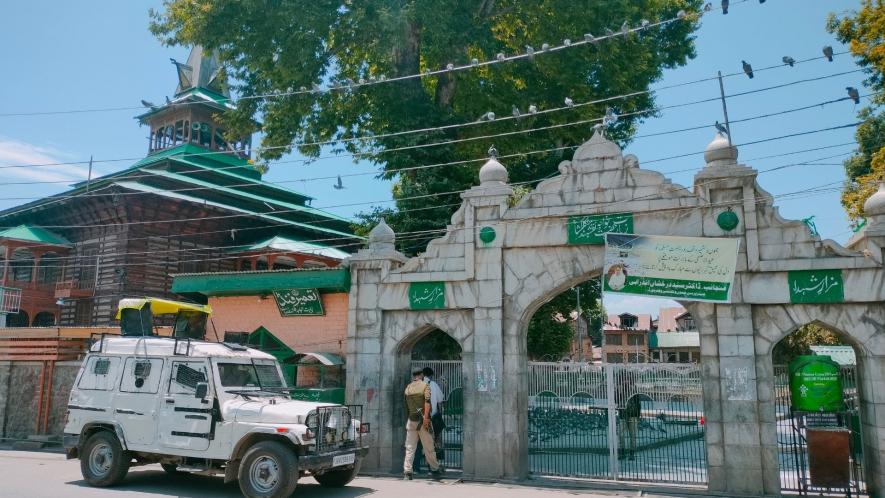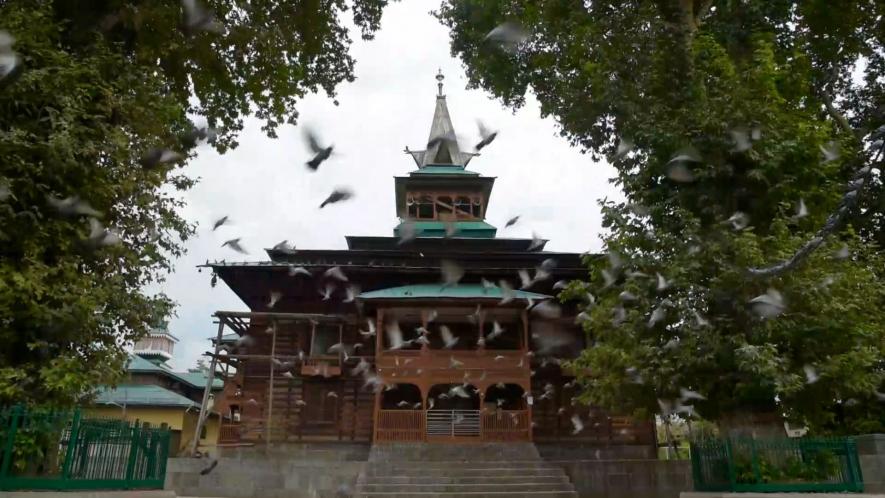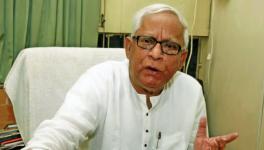J&K Waqf Board to Recruit Degree-holding Imams to Replace old Guard, Parties Slam the Move

Srinagar: The Jammu and Kashmir Waqf Board has said that it will be recruiting degree holder Imams and Muezzins for the region's mosques and shrines and will be providing more opportunities to young instead of the old, the board's chairperson Darakshan Andrabi said.
Andrabi, in an interaction with the local news wire KNS, said that the Waqf will invite applications, following which interviews will be conducted to shortlist the candidates.
The Bharatiya Janata Party (BJP) leader said that the board has decided to recruit people with degrees in Islamic Studies.
"We want to revive this culture in Kashmir onwards. We will invite applications, and interviews in this regard will be conducted soon," she was quoted as saying.

She added that the Waqf board will likely replace elders with young scholars, which she said people have been "demanding".
"We respect our Imams and preachers, but there should be an age limit to serve the community. Those who will lead prayers and congregations should be young and degree holders," she added.
In an interaction with reporters on Saturday, Andrabi argued that there is a need to involve people with degrees in religion as there are many youth with religious degrees from reputed colleges and universities.
"We don't want people to face any issues, and our religion should become widespread, and our next generation should become religious. We want our Muezzins and Imams to perform their duties in the same as is carried in Mecca where they (Qaris) recite the Quran soulfully," she told reporters.
Many, however, see the decision as "arbitrary" and unlikely to achieve any intended objective.
Tanvir Sadiq, the chief spokesperson of Jammu and National Conference (JKNC), the party that played a key role in the establishment of the board, told NewsClick that while it's important to give young individuals opportunities, it's crucial to recognise that experience comes with age. He added that there is already a rigorous selection process present in several places, including at the city's Hanfiya College, and intervening in that process is "inappropriate".
"For a religious institution like the waqf board, it's necessary to have religious scholars with expertise not only in their religious domain but also in worldly affairs. It's impossible to replace seasoned Maulvis, preachers, and Muezzins with a simple decision," Sadiq said.
The National Conference leader said that even if the situation demands it, new recruits should undergo a probationary period under the guidance of seniors and gradually transition out those unable to fulfil their responsibilities due to health or other reasons.
"However, making unilateral decisions is inappropriate and will fail to achieve the intended purpose," he said.
Senior leader Mohammad Yousuf Tarigami from the Communist Party of India (Marxist) also advocated that the decision to recruit an imam or other religious figures should be left with the communities or religious institutions.
"Our constitution is secular, and the State itself is also secular. The communities and institutions, irrespective of the religion, should be trusted to take such decisions on their own. The State must not interfere with the religious matters," Tarigami told NewsClick.
Since Andrabi's appointment in 2022 as the board's chairperson, it has drawn flak from socio-political and religious bodies in the region for several of its decisions that the latter claimed were 'controversial' and allegedly aimed to exercise complete control over the religious centres.
There are more than 32,000 notified properties of the board across the Union Territory. The Waqf manages around 3,000 mosques, 25,000 shops, a dozen schools, four religious seminaries, one nursing college and about 3,000 kanals of agricultural and horticulture land. Most of these were managed by local communities, while the Board managed less than 4,000 properties directly. The latter recently initiated a process to bring the left-out properties under direct control
In June this year, the Muttahida Majlis e Ulema (MMU), an amalgam of over 40 social and religious groups, passed a resolution accusing the board of using "force" to take over the religious places in Kashmir and urged Waqf to desist from "pursuing this agenda".
Get the latest reports & analysis with people's perspective on Protests, movements & deep analytical videos, discussions of the current affairs in your Telegram app. Subscribe to NewsClick's Telegram channel & get Real-Time updates on stories, as they get published on our website.
























